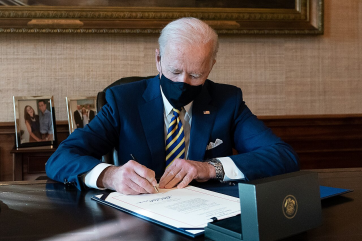Regular Coffee Consumption Linked to Lower Risk of Suicide, Cancer and Heart Failure
By Russell WesterholmIs coffee a cure-all miracle drink? No, but it will lower the likelihood of suicide in adults and wide range of other things, CBS News reported.
The latest java study comes from Harvard School of Public Health and is published in the July edition of World Journal of Biological Psychiatry. The study suggested that those who drank two to four cups of coffee per day were more than 50 percent less likely to commit suicide than those who drank less than one cup.
The researchers surveyed 208,424 people, between 70 and 80 percent of who said they were coffee drinkers. They were tracked from 1988 to 2008 and, during that time, there were 277 suicides from the group.
Those who drank two or three cups of coffee per day saw their risk drop by 45 percent, while those who drank four or more cups had a 53 percent less chance.
The research team believes coffee acts as a mild antidepressant and can actually raise a person's levels of serotonin, dopamine and noradrenaline. The caffeine can increase these neurotransmitters and actually boost a person's mood.
"Unlike previous investigations, we were able to assess association of consumption of caffeinated and non-caffeinated beverages, and we identify caffeine as the most likely candidate of any putative protective effect of coffee," lead author Michael Lucas said.
However, in the latest edition of DSM-5, coffee intoxication and withdrawal is listed as a psychiatric disorder. Just like any substance, one can become addicted and dependent on coffee and can go through vicious withdrawal symptoms, including depression, without it.
In another Harvard School of Health study, along with Boston's Brigham and Women's Hospital, coffee is also linked to lower risk of Parkinson's disease, diabetes and skin cancer.
The study surveyed 113,000 men and women and those who drank coffee regularly had a 20 percent lower risk of basal cell carcinoma, the most common form of skin cancer, than those who did not drink coffee.
"I think we're seeing more and more evidence for the beneficial effects of coffee consumption," lead author Jiali Han told ABC News. "I wouldn't recommend drinking coffee solely based on this work, but it does add one more thing to the list."
In another separate study, Time reported, researchers found the morning boost drink to lower a person's risk of heart failure. In this study, coffee drinkers with "moderate" consumption habits were the healthiest and had the lowest risk.
The study, conducted at Beth Israel Deaconess Medical Center in Boston, surveyed 140,220 people and found that those who drank about two cups per day were 11 percent less likely to experience heart failure.








